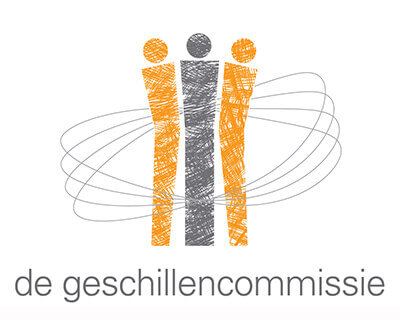Complaints procedure
The Academy for Coaching and Counselling (ACC) will always try to prevent complaints from arising. Should a complaint nevertheless arise, the following procedure will apply.
Every complaint will be taken seriously and treated confidentially. Via the complaints procedure we aim to restore the confidence between the ACC and its student(s).
This complaints procedure applies to students, staff and faculty of the ACC. The party making the complaint is referred to as the “complainant” in these rules.
Submitting a complaint to the ACC
- A complaint must be submitted in writing by email to legal@counselling.nl. The management of the ACC will handle the complaint.
- A complaint may be filed regarding the following:
– the registration procedure;
– the contact with (staff members of) the ACC;
– the performance of the teacher;
– the training facilities;
– the content of the training programme and/or the provided study material. - If a complaint concerns transgressive behaviour, it can be reported internally and/or externally. In such a case, the external Confidential Advisor, who has a designated role in this regard, can be contacted. The following acts are considered as transgressive behaviour: sexual abuse, sexual intimidation, physical violence, psychological violence (including bullying), discrimination and radicalisation. For further information on this subject we refer to the Protocol Confidential Advisor. Complaints of a different nature do not belong with the Confidential Advisor and should be submitted to the management of the ACC, as described in this complaints procedure.
- The complaint must contain at least the following information:
– Name
– Address
– Telephone number
– E-mail address
– Training programme
– Date and time of the event
– Description of the event
– The possible person(s) involved in the occurrence of the event
– The purpose/goal of the complaint
Handling of the complaint by the ACC
- The ACC sends the complainant a confirmation of receipt of the complaint within four working days and informs the person responsible for the occurrence of the complaint. Complaints are always treated confidentially.
- Complaints will be processed within four weeks. If a longer period of time is needed to conduct research, the complainant will be notified within two weeks of the lodged complaint, explaining the delay. The ACC will then also give an indication of when a definitive answer can be expected by the complainant.
- Initially, an attempt will be made to resolve the complaint through internal mediation. If the complaint cannot be resolved through internal mediation, an investigation of the complaint will be made using the right to be heard. After this, the ACC will make a decision about the complaint.
Dutch Complaints Board
- If the complainant does not agree with this decision, he/she can submit the dispute to an external body. The ACC is affiliated with the NRTO and therefore uses the complaints procedure as determined by the NRTO. This means that disputes about the formation or implementation of agreements with regard to services to be supplied or delivered by the ACC, can be submitted by both the complainant and the ACC to the Dutch Foundation for Consumer Complaints Boards (Dutch Complaints Board / Geschillencommissie).
- The Dutch Complaints Board will only handle disputes in Dutch (see paragraph 12 below for international students) and only if the complainant has first submitted his/her complaint to the ACC and this has not led to a satisfactory solution for both parties.
- A dispute must be submitted to the Dutch Complaints Board within twelve months of its occurrence.
- If the complainant submits a dispute to the Dutch Complaints Board, the ACC is bound by this choice.
- If the ACC wishes to submit a dispute to the Dutch Complaints Board, the ACC must first ask the complainant in writing to agree with this within five weeks. The ACC shall thereby notify the complainant that, after the aforementioned period has expired, it will have the right to submit the dispute to the ordinary court.
- The Dutch Complaints Board makes a decision with due observance of the provisions of its applicable regulations. The decision of the Dutch Complaints Board will be binding for the ACC.
- In case the complainant is a citizen of the Netherlands, who does not speak Dutch and wants to file a complaint with the Dutch Complaints Board, he/she can ask someone in their network for assistance with filing a complaint. Or, if the complainant is a citizen of the EU, Norway, Iceland or the UK, who lives outside of the Netherlands, and would like to file a complaint with the Dutch Complaints Board, they can contact the European Consumer Centre (ECC) in their own country for assistance in their own language. The ECC is not allowed to advocate on the complainant’s behalf at the Complaints Board, they can only assist the complainant. The ECC provides information on consumer rights within the EU. For further information in English you can visit the ECC’s website. For more information on further assistance in this regard, please visit the Dutch Complaints Board’s website.

General provisions
- Dutch law applies to all legal relations between the ACC and the complainant.
- The ACC is not obliged to take on a complaint concerning an event that took place more than six months before the complaint was submitted.
- A complaint cannot be submitted twice for the same fact/event.
- The ACC is not obliged to take on a complaint concerning an event that has been submitted to the judgment of a judicial body through the initiation of proceedings.
- If the ACC decides to not take on a complaint, the complainant will be notified of this in writing no later than four weeks after submission of the complaint.
- Documents related to a complaint will be saved by the ACC for two years after the complaints procedure has been finalised.


